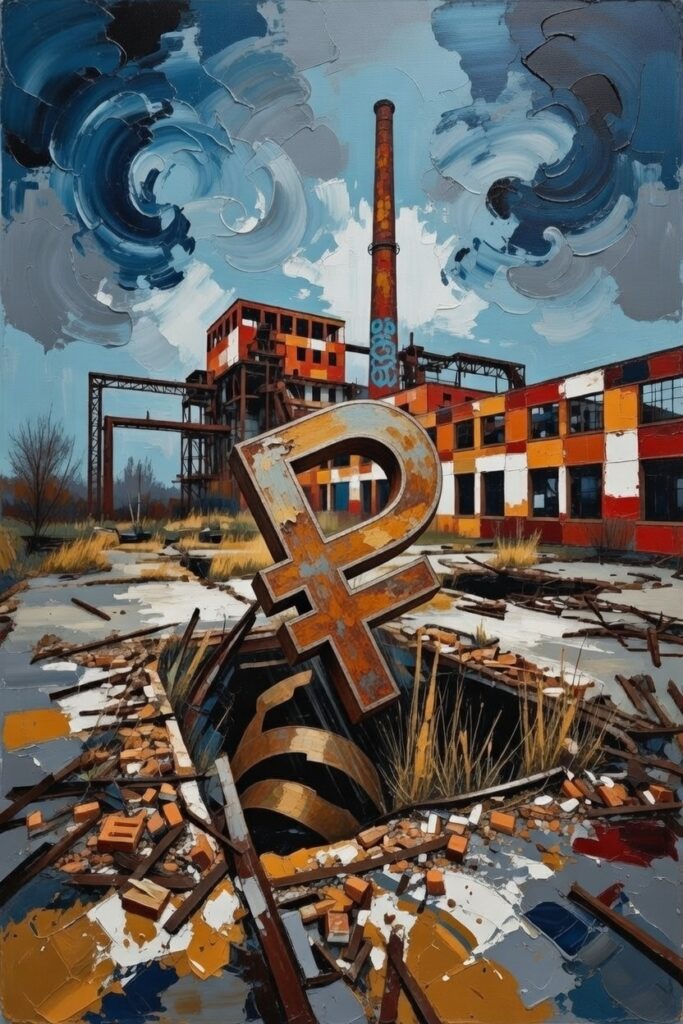The Trump-Putin summit in Alaska has sparked fear among observers and commentators that something sinister is underway. Abandoning any pretense of respecting Kyiv’s negotiating position, Trump appears to have dropped demands for a ceasefire, ruled out Ukrainian NATO accession, and seeks to orchestrate a forced land swap, including territory Russia has yet to claim. More details will emerge today and this week regarding what European leaders and Zelenskyy can convince him to accept. The timing and the «correlation of economic forces» working against Moscow explain Putin’s eagerness for a one-on-one with Trump and pry open the negotiation process in disruptive ways.
August is a quiet month for markets, especially in Europe, where many take extended time off. This analysis focuses less on the minutiae of business or economic updates and more on the underlying direction of travel and the accelerating destabilizing factors for policymakers. Three days before departing for Alaska, Putin initiated the formal negotiation process for Russia’s next three-year budget. In bureaucratic language, Finance Minister Anton Siluanov claimed that social support and economic development would receive significant weight alongside the war effort, but this assertion is absurd on its face. The Ministry of Finance persists in its sophistry, crafting budgets that assume future reductions in military spending based on a victory in Ukraine that never materializes. The deficit for January-July reached 2.2% of GDP, a figure almost certain to grow in the second half of the year as oil prices decline and the ruble strengthens.
The growing anxiety over budget deficits is far more rational now than it was before the invasion. Labor shortages, distortions from military spending, and the ongoing effects of sanctions make deficits significantly more inflationary. The timing of the Alaska talks is particularly noteworthy in this context. The Kremlin is evidently displeased that economic growth is slowing, seemingly unaware of the war effort’s destructiveness to economic life. While GDP growth of 1.1% in the second quarter does not signal an imminent recession, the «stuttering along» thesis is unconvincing, given what wartime spending and higher interest rates have done to the structure of demand across the economy.
Impending budget cuts pose a headwind for consumers due to the damage inflicted on state and public sector capacity by the war. Estimated energy revenue losses are projected to reach approximately 2.6 trillion rubles under current conditions, while the National Welfare Fund has only 4.1 trillion rubles in liquid reserves remaining. Cuts to economic programs have already begun, avoiding larger headwinds only because these programs were grossly inadequate to begin with. The nearly 40% decline in investment in commercial real estate serves as a stronger indicator of consumer spending intentions. If non-military manufacturing has stagnated and slipped into a slow decline, consumers are, by definition, either turning to imports to sustain consumption or pulling back entirely.
With high interest rates and costs deferring purchases of homes and autos, the relative weakness elsewhere is concerning. TsMAKP is already painting a worrying picture of a potential recession in 2026, with mounting signs of stress that could quickly tip «stuttering» into something far worse. The creeping expansion of four-day workweeks in manufacturing, building materials like cement, and other sectors signals a potential cascade. Pay is cut, orders are slashed, smaller suppliers scale back, and interconnected flows of wages and payments are disrupted, creating a broader financial problem. Putin’s acknowledgment of rising «hidden unemployment» reflects fragility, not confidence, even if the government can power through it. Businesses have pushed workers to their limits and employed anyone unable to find worthwhile work in the formal economy. From 2020 to 2024, investment in fixed assets grew by 36.5%, while GDP increased by only 10.1%, marking the largest gap in the past fifteen years and revealing the wartime economy’s greatest crisis: investment has been spectacularly inefficient in generating sustainable growth.
The slowdown in investment this year takes time to manifest as a recession, but investment drives demand for goods, services, and labor. As investment falls, so does pay. Economies with larger service sectors can glide more easily without immediate impacts on growth, but in wartime Russia, investment and procurement have been the «secret sauce» circulating money through the economy. Then there is the privatization of public needs. The medical sector is short over 23,000 doctors and nearly 64,000 nurses. Health resorts are often operating with 30−40% staff shortages. As medical care deteriorates due to these issues, people are forced to self-treat or face delays in screenings and other essential care. Declining investment levels, combined with budget cuts outside the war effort, create a perfect storm of rising spending demands on households as wages stagnate in nominal terms. The real wage growth narrative has always been questionable, given the lack of evidence that imports have grown significantly.
These factors underscore the significance of Putin’s presence in Alaska. Now is the time to establish a negotiation process before a recession begins to materially affect the war effort’s management. Finding bodies for the front is arguably easier as economic conditions worsen. However, sustaining the industrial effort is a different challenge, one that has exhausted «easy wins» like overworking labor or drawing more people from the informal economy. People may grow more desperate, jumping at factory jobs as they arise, but their quality of life will undeniably worsen. No manipulation of wage data can alter this reality. Surveys about satisfaction with one’s lot in life are absurd indicators, detached from reality, whether due to political fear or the recognition that things are, quite literally, as good as they can possibly be.
Putin has outmaneuvered Trump and Zelenskyy for now, but he lacks the capacity to sustain this advantage. American policy is fickle, and with Republican voters now souring on Russia, it is no longer a political winner. More telling is that the farce of negotiations has begun at all. If the economy is sputtering, it may well be that in a few months, discussions will shift toward a crash back to earth.










